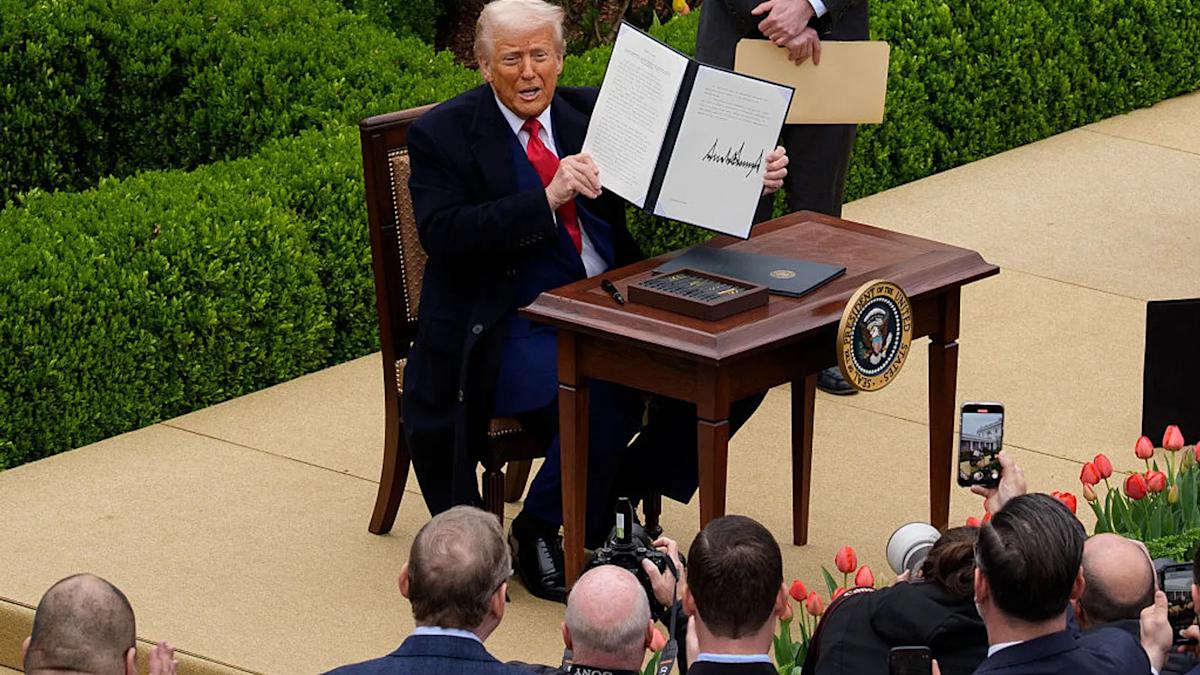Judges Review Presidential Tariff Authority Amid Emergency Powers Debate
- Small Town Truth

- Aug 7, 2025
- 2 min read

In a critical review of presidential authority, appellate judges are scrutinizing the extent to which a national emergency can empower the executive branch to implement tariffs. During a hearing on July 31, judges evaluated whether actions taken by President Donald Trump, particularly on his so-called "Liberation Day" in April, exceeded the limits of executive power.
This hearing originates from an appeal by the Trump administration concerning a ruling by the U.S. Court of International Trade in the case of V.O.S. Selections, Inc. v. Trump, which temporarily halted the president's expansive use of tariffs.
Some members of an 11-judge Federal Circuit panel expressed skepticism about the government’s interpretation of the 1977 International Emergency Economic Powers Act (IEEPA), which the administration argues grants the president the authority to impose tariffs on a global scale without congressional approval. The judges highlighted that the IEEPA does not specifically mention tariffs, and prior legal precedents did not endorse “unbounded authority” for the president over tariff regulations.
In its defense, the government pointed to a historic instance when President Richard Nixon imposed a 10% tariff on all dutiable imports in 1971, aimed at influencing other nations to reevaluate their currencies and thereby reduce the overvaluation of the U.S. dollar.
Although Nixon's tariffs faced legal challenges in U.S. v. Yoshida International, Inc., the 1975 ruling affirmed presidential authority to impose tariffs. However, a key distinction arose: Nixon's tariffs were temporary and did not infringe upon Congress's exclusive power to determine the Harmonized Tariff Schedule (HTS). In contrast, Trump’s tariffs lack an expiration date and effectively modify existing HTS rates.
Assistant Attorney General Brett Shumate, representing the government, contended that the IEEPA builds upon the precedent set by the 1975 ruling, asserting that it provides the president extensive authority to regulate imports. Shumate argued, “The phrase here (in IEEPA) that the President relied on is regulate importation. Tariffs regulate importation by controlling imports, by adjusting imports.”
Furthermore, Shumate suggested that Congress implicitly endorsed the president's use of tariffs by granting such powers through the IEEPA, which was established shortly after the Yoshida ruling.
However, Oregon Solicitor General Benjamin Gutman, representing multiple plaintiff states in V.O.S. Selections, countered that the government's interpretation represented an unwarranted expansion from the limited tariff powers recognized in 1975. “Yoshida says repeatedly that it is not sanctioning an unbounded exercise of tariff and authority,” remarked Gutman.
Lawyer Neal Katyal, representing five commercial plaintiffs, reiterated that any substantial delegation of authority regarding tariff imposition must be clearly defined by Congress. “If the government is going to have that power, then Congress has to give it to them clearly,” stated Katyal, who held a senior position in the Justice Department under President Obama.
The appellate court did not specify a timeline for its ruling in V.O.S. Selections, and expert Jonathan Todd from Benesch Friedlander Coplan & Aronoff noted the complexity of the court’s deliberation. “There’s a great deal of gravity here, and in some of the questions from the court, it was clear that they were exploring what this really means for the office of the presidency and the future of the country,” Todd stated in an interview.
.png)